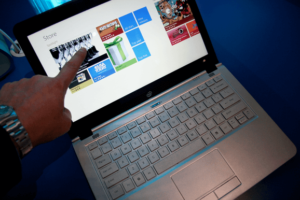It’s back to school time and there are many things to look forward to, but there’s still one thing everyone despises — the cost of textbooks. Depending on your major, the cost of textbooks can reach over $500 a month and include more than 20 books. As an experienced poor college student, I know the cost may sicken you, but there are many ways to get your college texts without the cost. Check out seven tricks to get you all the books you need at a fraction of the price.
1. Wait it Out

My biggest suggestion for buying textbooks is to wait until you have your syllabus. Often books are listed as “recommended,” meaning you don’t actually need them and will probably never look at them. Avoid those. For the rest, look through the syllabus and see how often you use a book. If it’s only for a week or two, consider faking your way through, borrowing from a classmate or finding it online. Textbooks that last a whole semester, however, are better to have on hand.
2. Always Check the Library

Many course texts are available in the school’s library system. While textbooks are difficult to come by, there are typically multiple copies of literature books. Occasionally professor’s put textbooks ‘on reserve’ at libraries, meaning, you can look at them there, but not check them out. Check out what you can and be sure to reserve it ahead of time. Set aside some time each week to go to the library and get your readings done. If possible, photocopy the necessary pages from the textbook and take them home with you. The price per page should be well under the cost of buying the book.
3. If You Hate Buying Online, Buy Used on Campus

A key money-saving tip for textbook shopping is to avoid full price bookstore textbooks at all costs. If you’re not comfortable with online shopping, your school bookstore should sell pre-owned copies that belonged to students from past semesters. If that’s still too costly, check Facebook for a textbook selling/trading page for your school. You can find cheaper pre-owned books and possibly trade some of your old ones that are taking up space.
4. Do Yourself a Favor and Shop Online

You can find most textbooks, new and used, online for a fraction of the bookstore cost. My personal go-to websites are Amazon and eBay, where you can straight up buy the book you need for the lowest price available. There are also many price comparing websites that do the work for you, including Bigwords, AbeBooks, DealOz, Half and many others. Keep an eye out for the best deals so you can save money for the finer things of college life, like pizza and beer.
5. If You’re Sick of All Your Left Over Books, Start Renting

Renting books is a happy medium that allows you to get your books cheap and return them at the end, ridding you of all your textbook clutter. Rentals also often include digital copies of the text, which means less weight on your back when heading to and from class. The only downside of renting is that you lose the potential of reselling your books and gaining some of your money back in the end. Websites like Chegg, Barnes&Noble, BookRenter, DirectTextbook are great places to start looking.
6. If You Don’t Want the Clutter or the Cost, Start Mooching

While I don’t recommend this for important, semester-long books, mooching is a pretty solid way to get through the short term. Make a friend in the class, and ask her if you can borrow the book once she’s done with the scheduled reading. Any good bro should loan it to you without a problem.
7. If You Don’t Want the Clutter, Cost or Friends, Try Google

Google is a wonderful thing and offers you whatever you can imagine, so why not textbooks too? Try Googling the title and author or ISBN number. Sometimes you can find entire PDFs of your texts for free. Most times, however, you can’t find an entire book but you may find snippets that cover the section you’re looking for. GoogleBooks is a good place to start and offers previews of a lot of different texts. Begin your hunt for free texts by searching page numbers and key words, and reap the rewards.



















